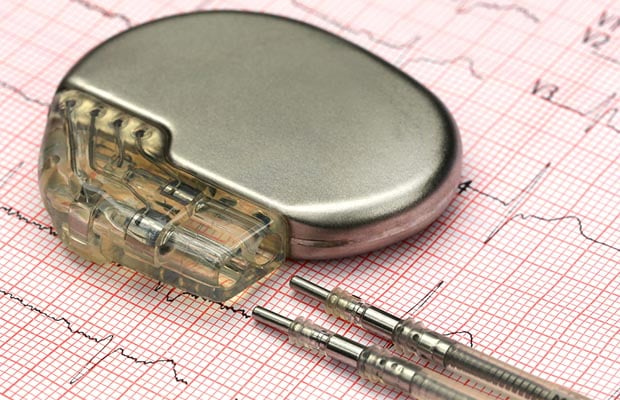Electrophysiologist Dr Anthony Li says:
Yes, this is safe. Most pacemakers and ICDs (implantable cardioverter defibrillators) are implanted in the upper left side of the chest.
During CPR, chest compressions are done in the centre of the chest and should not affect a pacemaker or ICD that has been in place for a while. If your pacemaker has been inserted recently, there’s a small chance that the leads may be moved by vigorous chest compressions. But that’s a very small issue when compared with the CPR that could save your life.
When it comes to using an automated external defibrillator (AED), the pads are usually placed on the upper right side of the chest and on the side of the rib cage under the left arm, so a pacemaker or ICD shouldn’t get in the way.
Although there is good evidence that an ICD can save your life if you have a cardiac arrest, they can’t prevent them completely. Sometimes a cardiac arrest isn’t caused by a rapid and life-threatening heart rhythm, in which case the ICD won’t deliver a shock and CPR should be started immediately. Or an ICD may deliver one or more shocks, but this doesn’t succeed in restarting a normal heart rhythm.
Either way, if the person is unconscious and not breathing, they should be given CPR without delay. If an ICD does then deliver a shock while CPR is being performed, the internal shock will not harm the person doing CPR.
If a defibrillator is available, it should be used immediately. It analyses the heart rhythm through externally placed pads, and if it detects that the heart has been restored to a normal rhythm by an ICD, it won’t deliver a shock. The ICDs won’t be damaged by the defibrillator.
If you have received CPR or defibrillation, your pacemaker or ICD should be checked afterwards to ensure the settings are still accurate.
 Meet the expert
Meet the expert
Dr Anthony Li is an electrophysiologist at St George's University Hospital in London.







